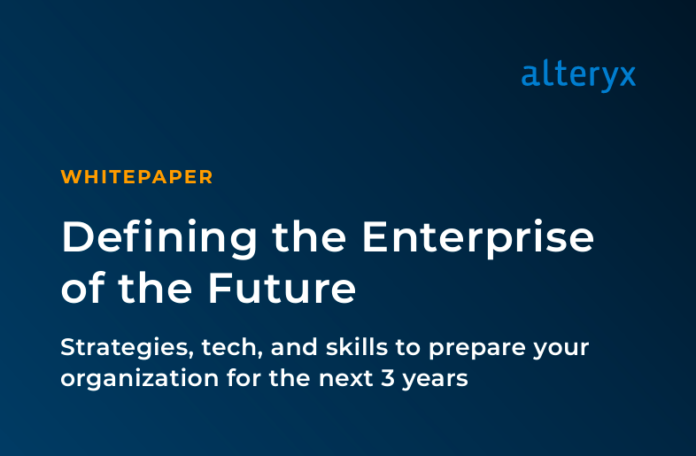As business leaders and recruiters across Singapore prepare for an AI-infused labour market transition, many existing roles will evolve and become obsolete, reshaping the skill stack of the future workforce at an accelerated pace, according to a report from Alteryx.
However, the research also found a disconnect between the skills and traits currently prioritised during the hiring process and the attributes needed to reap artificial intelligence’s greatest benefits.
Alteryx commission Coleman-Parkes, which conducted a survey in September and October 2023, and targeted 2,800 IT decision-makers, data analysts, and line of business leaders about the enterprise of the future. Respondents were based in North and South America, Europe, Japan, India, Singapore, and Australia.
Results show that 56% anticipate the emergence of the Chief AI Officer role will be critical to a more holistic approach to AI strategy that collaborates with business units from IT and compliance to HR and People teams. For context, just over 400 globally have CAIO in their LinkedIn job titles.
The three most urgent hiring priorities cited by business leaders are AI applications engineers (33%), responsible for designing and developing AI-powered models; AI/ML engineer (24%), focuses on researching, building and designing self-running artificial intelligence; and AI research scientists (23%), who drive innovation through the research and development of AI systems.
Comparatively fewer said that they are urgently hiring AI whisperers (18%) and prompt engineers (14%) tasked with communicating with and guiding AI systems. However, the labour market is set to shift again, as over half (51%) expect these roles to be necessary as generative AI transitions from exploration to wide-scale rollout.
Database administration (27%), Single-language software development (21%), Repetitive coding (20%), and AI and ML Development (18%) are among the technical skill sets that will become obsolete.
Of those polled, 54% say that their organisation currently operates in a very siloed way, but 44% believe that data teams of the future will need to be decentralised to ensure data is available to teams who need it across the business.
Despite the well-documented AI skills gap, many businesses still prioritise recruiting for roles with highly sought-after technical skills.
Only 19% cite building human capacity and preparing for a labour market transition are important considerations for an AI world.
While 66% of respondents say it is more important for their employees to be multi-skilled than specialising in a specific area, upskilling priorities still favour hard skills over soft skills.
Expertise in AI, software, data analysis and mining, and financial analysis and planning all ranked ahead of the most in-demand soft skills, including data literacy, strategic thinking, digital literacy, and team leadership.
Among respondents, 56% cite creativity as the top skill humans will supply in a working world shaped by AI, followed by emotion (46%), critical thinking (41%), and morality (39%). Yet, only 17% counted critical thinking, and 20% counted creativity in the top three in-demand skills.
“Not all employees need to become data scientists,” said Libby Duane-Adams, chief advocacy officer at Alteryx. “It’s about championing cultures of creative problem-solving, learning to look at business problems through an analytic lens, and collaborating across all levels to empower employees to use data in everyday roles.”
Duane-Addams said continuous investments in data literacy upskilling and training opportunities will create the professional trajectories where everyone can “speak data” and exploit AI applications for trusted, ethical outcomes.”
















